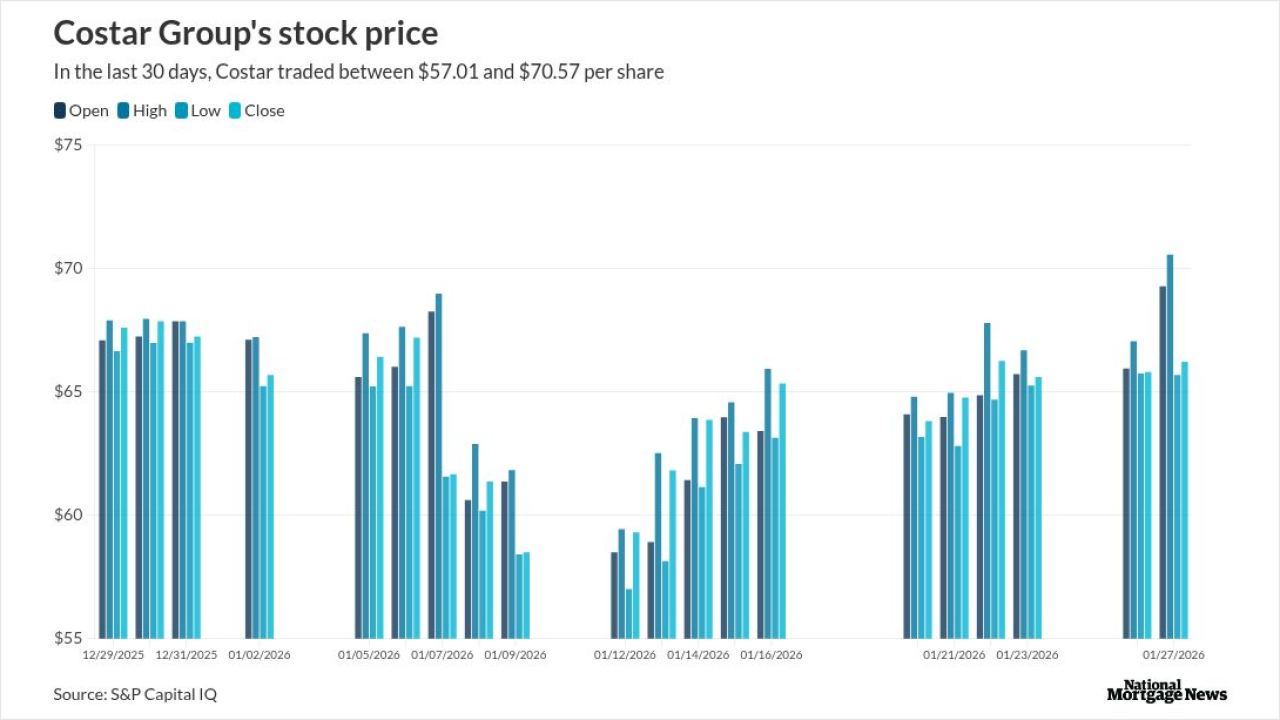The Department of Justice is criticizing a proposed settlement in a real estate
The feds' filing Thursday in a Massachusetts case against a Multiple Listing Service is a significant development, analysts with Keefe, Bruyette & Woods wrote this week. The objection alludes to further stronger actions by the government to uproot the longstanding broker compensation structure.
"We view the development as a negative headline for companies with buyer agent commission-driven models, including the residential brokers and legacy real estate portals," analysts wrote.
The lawsuit between consumers, real estate brokerages and the MLS Property Information Network, a Northeast-based service, is one of several large legal challenges to commissions structures. A federal jury last October dealt a major blow to leading industry firms in
Attorneys with the DOJ Thursday took aim at numerous aspects of the Massachusetts settlement, which the MLS PIN and consumers have yet to seek preliminary approval for. The proposed agreement puts forth rule changes such as compensation as low as zero rather than $0.01; allowing negotiations over compensation; and requiring brokers to issue disclosures about the new rules.
"It makes insignificant and largely cosmetic changes to the rule, while perpetuating the existing structure that drives supra-competitive commissions," federal attorneys wrote.
The zero-dollar compensation rule doesn't solve the issue of buyer brokers "steering" clients to listings with higher commissions, the government argued. Attorneys also cited a
Feds propose the MLS PIN settlement should rather prohibit buyer-broker compensation offers entirely, and give the burden of commissions to each side of the transaction. Buyer brokers could choose to offer flat fees or hourly rates in lieu of percentage commissions since their efforts have "a weak correlation, if any" to the final sales price of a home.
"Most, if not all, buyers would likely prefer a fee structure that does not reward their broker for helping them to pay more for a home," attorneys for the DOJ added.
The DOJ's
The government intervened in the Massachusetts lawsuit because of a 2005 law allowing feds to voice concerns over pending class action settlements on behalf of citizens. It hasn't intervened in the billion-dollar Missouri-based judgment involving the National Association of Realtors, or other prominent commissions suits.
Feds are also awaiting
The impact of possible commissions rule changes on mortgage lenders remains unknown, although industry experts have
"Ultimately, we believe the primary agent of change lies with NAR as it is the one that maintains the rules that govern the prevailing commission structure," wrote analysts.




